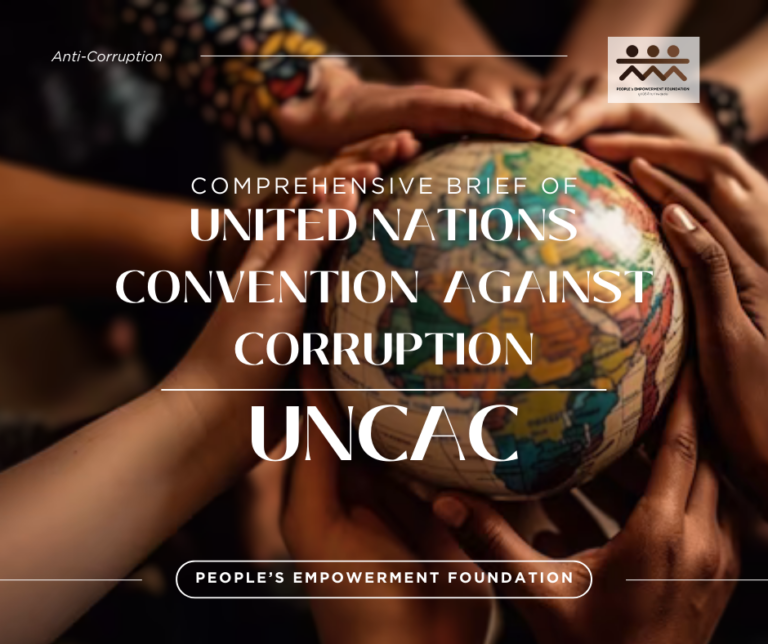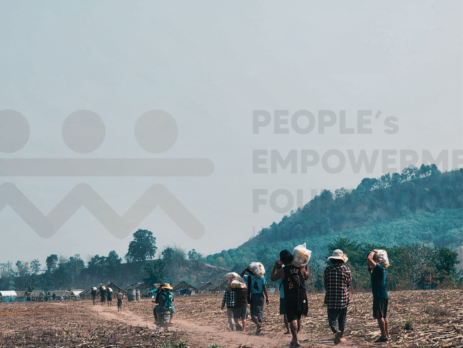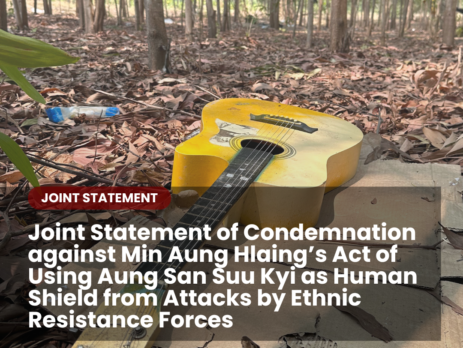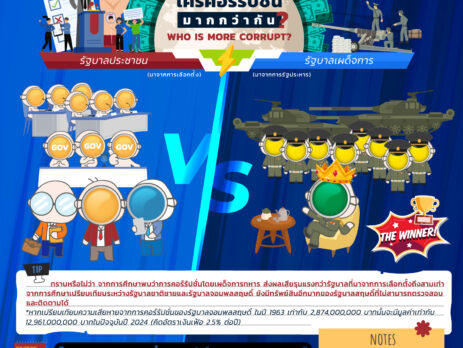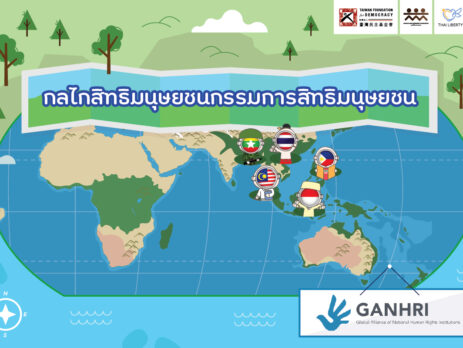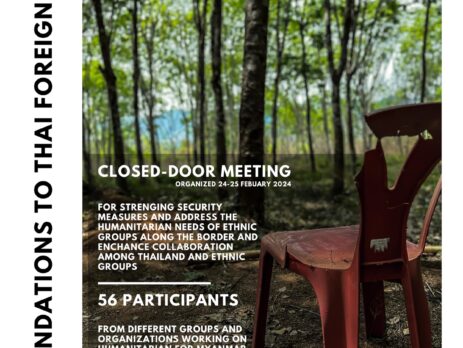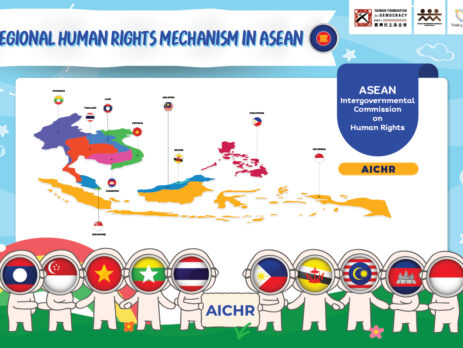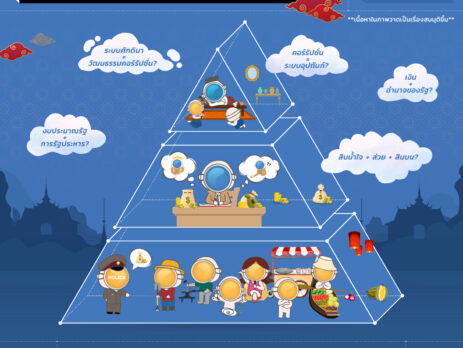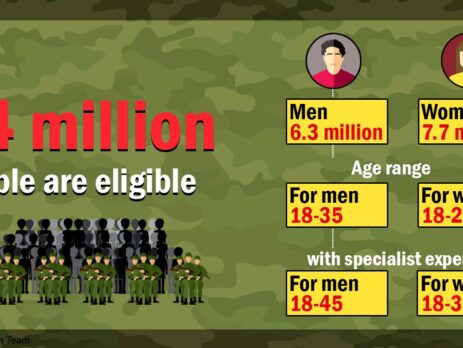(ภาษาไทยด้านล่าง)
The United Nations Convention against Corruption: the treaty strengthening global integrity and accountability
In October 2003, the international community took a decisive step toward combating corruption by adopting the United Nations Convention against Corruption (UNCAC). This pivotal treaty, embraced by 189 nations, stands as a testament to the collective resolve to eradicate corruption across borders. The treaty operates under the stewardship of the UN Office on Drugs and Crime (UNODC) in Vienna, with the primary objective of addressing the multifaceted challenges posed by corruption through international cooperation and the restitution of unlawfully acquired properties.
UNCAC is distinguished by its comprehensive and robust provisions, many of which are mandatory, while others are ‘strongly encouraged’ or optional. The convention operates within the framework of individual states’ domestic laws, allowing for diverse interpretations of its requirements. This flexibility recognizes the unique socio-political contexts within each country while ensuring a universal commitment to anti-corruption efforts.
Another cornerstone of UNCAC lies in its emphasis on citizen and civil society participation in accountability processes. Recognizing the pivotal role of an informed public, the convention underscores the significance of citizens’ access to information. By encouraging the active involvement of civil society, UNCAC creates a dynamic, inclusive environment conducive to combating corruption effectively.
Central to the convention’s objectives is the promotion and strengthening of measures aimed at preventing and combating corruption more efficiently. UNCAC advocates for transparent procurement and financial management, fostering a merit-based civil service, and ensuring an independent judiciary. These principles provide the necessary foundation for fostering integrity, accountability, and proper management of public affairs and assets. By addressing these fundamental aspects, UNCAC paves the way for nations to build accountable, corruption-free societies.
UNCAC’s far-reaching impact is further underscored by its focus on international collaboration and technical assistance. The convention facilitates and supports cooperation among nations, enhancing their collective ability to prevent and combat corruption effectively. One of the key areas of emphasis is asset recovery, acknowledging the importance of returning the proceeds of corruption to their rightful owners. This restorative measure not only deters future corrupt practices but also ensures justice prevails.
Furthermore, UNCAC recognizes the critical role of transparent procurement and financial management in curbing corruption. By promoting fair, open, and accountable procurement processes, the convention curtails opportunities for corrupt practices. Additionally, the active engagement of civil society in anti-corruption efforts bolsters transparency and strengthens the mechanisms in place to prevent and combat corruption. In conclusion, UNCAC serves as a beacon of hope in the worldwide battle against corruption. Its extensive provisions, combined with a dedication to citizen involvement and international collaboration, establish a sturdy framework for nations to unite in their efforts to eliminate corruption. Upholding the principles of transparency, accountability, and integrity, UNCAC not only advocates for ethical governance but also nurtures a future where corruption finds no foothold in the affairs of nations. This comprehensive approach, coupled with the convention’s adaptability to diverse legal systems, makes it a cornerstone in the pursuit of transparent, accountable, and corruption-free societies across the globe.





(ภาษาไทย)
อนุสัญญาสหประชาชาติว่าด้วยการต่อต้านการทุจริต: การเสริมสร้างความซื่อสัตย์สุจริตและความรับผิดชอบระดับโลก
ในเดือนตุลาคม พ.ศ. 2546 ประชาคมระหว่างประเทศได้ดำเนินการขั้นเด็ดขาดในการต่อสู้กับการทุจริตโดยการนำอนุสัญญาต่อต้านการทุจริตแห่งสหประชาชาติ (UNCAC) มาใช้ สนธิสัญญาสำคัญนี้ซึ่งได้รับการยอมรับจาก 189 ประเทศ ถือเป็นข้อพิสูจน์ถึงความมุ่งมั่นร่วมกันในการขจัดการทุจริตข้ามพรมแดน สนธิสัญญาดังกล่าวดำเนินการภายใต้การดูแลของสำนักงานว่าด้วยยาเสพติดและอาชญากรรมแห่งสหประชาชาติ (UNODC) ในกรุงเวียนนา โดยมีวัตถุประสงค์หลักในการจัดการกับความท้าทายหลายประการที่เกิดจากการทุจริตผ่านความร่วมมือระหว่างประเทศ และการชดใช้ทรัพย์สินที่ได้มาโดยผิดกฎหมาย
UNCAC มีความโดดเด่นด้วยข้อกำหนดที่ครอบคลุมและแข็งแกร่ง ซึ่งหลายข้อเป็นข้อบังคับ ในขณะที่บางข้อได้รับการ “สนับสนุนอย่างยิ่ง” หรือเป็นทางเลือก อนุสัญญานี้ดำเนินการภายใต้กรอบกฎหมายภายในของแต่ละรัฐ เพื่อให้สามารถตีความข้อกำหนดต่างๆ ได้หลากหลาย ความยืดหยุ่นนี้ตระหนักถึงบริบททางสังคมและการเมืองที่เป็นเอกลักษณ์ในแต่ละประเทศ ในขณะเดียวกันก็รับประกันความมุ่งมั่นระดับสากลในการต่อต้านการทุจริต
รากฐานสำคัญของ UNCAC อยู่ที่การให้ความสำคัญกับการมีส่วนร่วมของพลเมืองและภาคประชาสังคมในกระบวนการรับผิดชอบ อนุสัญญาฯ ตระหนักถึงบทบาทสำคัญของสาธารณชนที่ได้รับข้อมูล โดยเน้นย้ำถึงความสำคัญของการเข้าถึงข้อมูลของประชาชน ด้วยการส่งเสริมการมีส่วนร่วมอย่างแข็งขันของภาคประชาสังคม UNCAC ได้สร้างสภาพแวดล้อมที่มีพลวัตและครอบคลุมซึ่งเอื้อต่อการต่อสู้กับการทุจริตอย่างมีประสิทธิภาพ
หัวใจสำคัญของวัตถุประสงค์ของอนุสัญญาคือการส่งเสริมและเสริมสร้างมาตรการที่มุ่งป้องกันและต่อสู้กับการทุจริตอย่างมีประสิทธิภาพมากขึ้น UNCAC สนับสนุนให้มีการจัดซื้อจัดจ้างและการจัดการทางการเงินที่โปร่งใส ส่งเสริมระบบราชการโดยยึดหลักคุณธรรม และประกันให้มีระบบตุลาการที่เป็นอิสระ หลักการเหล่านี้เป็นรากฐานที่จำเป็นสำหรับการส่งเสริมความซื่อสัตย์ ความรับผิดชอบ และการจัดการกิจการสาธารณะและทรัพย์สินอย่างเหมาะสม ด้วยการจัดการประเด็นพื้นฐานเหล่านี้ UNCAC จะปูทางให้ประเทศต่างๆ สร้างสังคมที่มีความรับผิดชอบและปราศจากการทุจริต
ผลกระทบที่กว้างขวางของ UNCAC ได้รับการเน้นย้ำด้วยการมุ่งเน้นไปที่ความร่วมมือระหว่างประเทศและความช่วยเหลือทางเทคนิค อนุสัญญาดังกล่าวอำนวยความสะดวกและสนับสนุนความร่วมมือระหว่างประเทศต่างๆ เพื่อเพิ่มความสามารถโดยรวมในการป้องกันและต่อสู้กับการทุจริตอย่างมีประสิทธิภาพ ประเด็นสำคัญประการหนึ่งที่เน้นย้ำคือการเรียกคืนสินทรัพย์ โดยตระหนักถึงความสำคัญของการคืนรายได้จากการคอร์รัปชั่นให้กับเจ้าของโดยชอบธรรม มาตรการฟื้นฟูนี้ไม่เพียงแต่ขัดขวางการทุจริตในอนาคตเท่านั้น แต่ยังรับประกันความยุติธรรมอีกด้วย
นอกจากนี้ UNCAC ยังตระหนักถึงบทบาทที่สำคัญของการจัดซื้อจัดจ้างที่โปร่งใสและการจัดการทางการเงินในการปราบปรามการทุจริต ด้วยการส่งเสริมกระบวนการจัดซื้อจัดจ้างที่ยุติธรรม เปิดกว้าง และตรวจสอบได้ อนุสัญญาดังกล่าวจะจำกัดโอกาสในการประพฤติทุจริต นอกจากนี้ การมีส่วนร่วมอย่างแข็งขันของภาคประชาสังคมในการต่อต้านการทุจริตจะส่งเสริมความโปร่งใสและเสริมสร้างกลไกที่ใช้เพื่อป้องกันและต่อสู้กับการทุจริต
โดยสรุป UNCAC ทำหน้าที่เป็นสัญญาณแห่งความหวังในการต่อสู้กับการทุจริตทั่วโลก บทบัญญัติที่กว้างขวาง ประกอบกับการอุทิศตนเพื่อการมีส่วนร่วมของประชาชนและความร่วมมือระหว่างประเทศ ได้สร้างกรอบการทำงานที่แข็งแกร่งสำหรับประเทศต่างๆ ในการรวมตัวในความพยายามที่จะขจัดการทุจริต UNCAC ยึดมั่นในหลักการของความโปร่งใส ความรับผิดชอบ และความซื่อสัตย์ ไม่เพียงแต่สนับสนุนการกำกับดูแลอย่างมีจริยธรรมเท่านั้น แต่ยังบ่มเพาะอนาคตที่การคอร์รัปชันไม่มีรากฐานในกิจการของประเทศต่างๆ แนวทางที่ครอบคลุมนี้ ประกอบกับความสามารถในการปรับตัวของอนุสัญญาให้เข้ากับระบบกฎหมายที่หลากหลาย ทำให้การประชุมดังกล่าวเป็นรากฐานที่สำคัญในการแสวงหาสังคมที่โปร่งใส มีความรับผิดชอบ และปราศจากการทุจริตทั่วโลก

